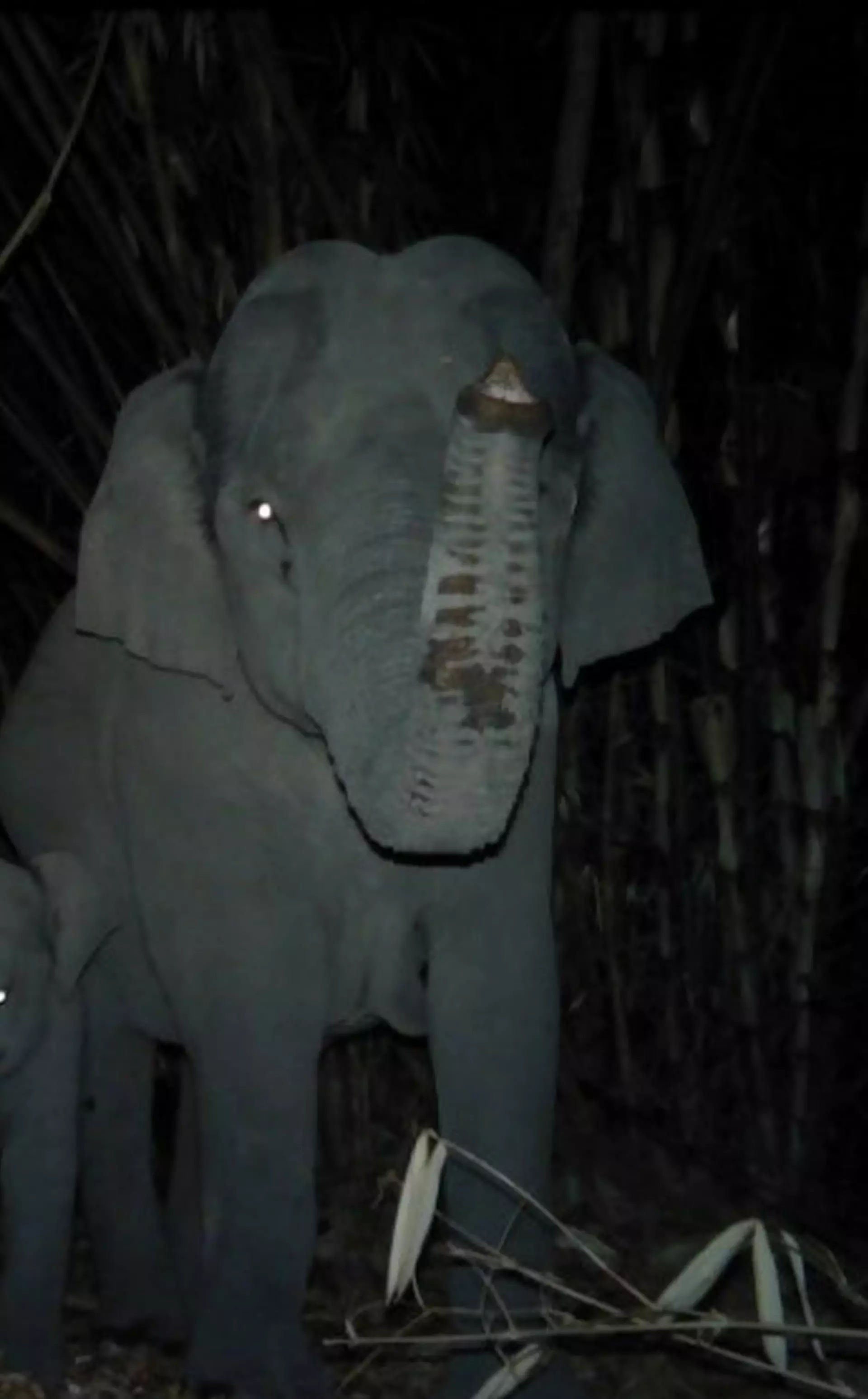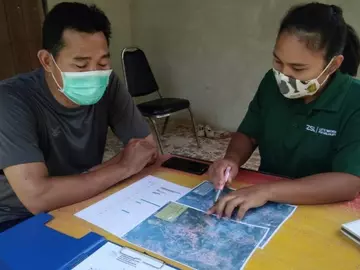
Gib Thampitak, ZSL's Elephant and Community Officer based in Kanchanaburi, Thailand shares how the team carried on field and community work during a pandemic.
My main role through the years has been as ZSL Thailand’s Elephant Officer, where I work on elephant surveys and community interventions to understand and mitigate Human Elephant Conflict (HEC).

ZSL Thailand’s office is in Kanchanaburi, located in the city near the famous ‘Bridge of River Kwai’. But this area is also a gateway to Thailand’s Western Forest Complex (WEFCOM), one of the last largest tracts of tropic forest in mainland Asia, the last stronghold for the Indo Chinese tiger and one of the top twenty sites for wild Asian elephants. ZSL has been working across five protected areas and 25 communities through various projects on tigers, elephants and pangolins.
Protecting elephants in the field and behind-the-scenes
My work over the past few months has been a mix of office and field work. For the field – this includes both forest and community work. Forest trips usually involve deploying camera traps or conducting ecological surveys, and village visits to hold community meetings, school education programs, and HEC mitigation work, especially to support our Elephant Rapid Response Units.
In January we deployed elephant camera traps across two protected areas to look at the distribution of elephants and livestock, which involved spending several weeks coordinating with park staff before heading to the forest, to set up cameras to monitor elephant movement.
It was great to be back in the forest and working with our partners in the field. I hadn’t been out in the field since I was pregnant with my first daughter, Má Feuang. I am not going to lie – it was hot! It’s always tricky to find drinking water when out for several days during the peak of the hot season so we arranged the schedule to allow us to return to the stations each night. Last month the cameras were collected from the forest and we now must annotate and analyse all of the images.
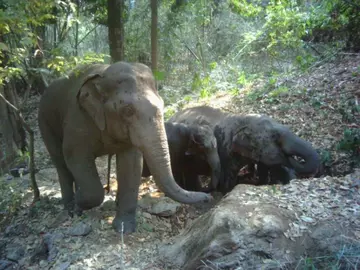
Community enagagement
Every month I visit the various communities to discuss the HEC projects and any progress or issues with the mitigation measures we have put in place, such as methods to prevent elephants eating crops, a common problem villages deal with.
There are many villages that have been affected, such as Thamanao village, which has been in trouble for 20 years. Previously, they thought they were alone in solving their problems. But, in recent years we have been engaging with them to share experiences from various places, sourcing advice from experts and supporting them in various ways so that the local people feel good about the elephants. Thailand was never under a strict lockdown within our province during the Covid-19 outbreak. However, the way we carried out our community work began to change – we no longer held community meetings and instead switched to using a telephone or LINE (Thailand’s instant messenger online) to exchange information. While much smaller than Bangkok, Kanchanaburi is considered a ‘city’ and we were cautious to reduce infections from the city to the countryside. When necessary, and with consent of the community members, we did continue to visit villages.
As for the matter of trekking and working together with rangers in the forest during the Covid-19 situation, we had to think about how we planned expeditions, especially to remote areas where we usually camp out overnight and eat communally. We had to change our routine eating habits, which in typical Thai style we normally share dishes and utensils, and instead only plan day long trips in place of over-night stays. Luckily, even with these changes, we were fortunate to keep on our overall schedule.
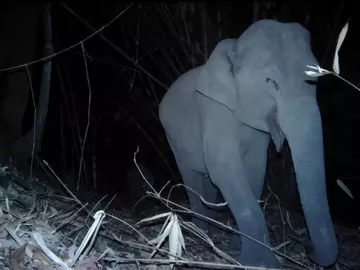
Thai people are very cautious of the virus and implementing safety precautions wherever possible. I think Thai people take the virus seriously, as we have had experience in the past with MERS and avian influenza.
Connecting wildlife habitats and human health
I am not quite sure how much things will change, especially since the public doesn’t necessarily see a clear link between disturbed wildlife habitat and risks to human health and wellbeing. However, I think the current pandemic is a good opportunity to turn the crisis into a learning opportunity in communities and schools. Overall, my goal is to protect wildlife and problem solve for communities, so I am always thinking of ways to integrate lessons into the local context
Over the past year and a half, life changed a little when I was expecting my first child and wasn’t able to spend as much time in the forest, as I used to do, conducting hands-on work in the communities and schools for the elephant and pangolin projects. While I still do love to go to the forest to survey elephants whenever possible, I also find the community work, and especially school programs that inspire the next generation of conservationists, really rewarding.
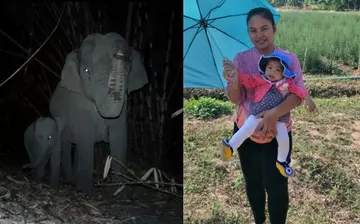
We are incredibly grateful to the individuals who have been kind enough to support, donate or volunteer with ZSL – your role has been crucial to us!
If you would like to donate to ZSL, supporting our two Zoos and conservation work worldwide you can do so below. Your gift will help to protect magnificent species like the Asian elephant and many more now facing extinction.
